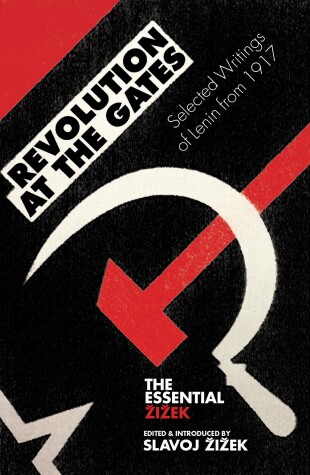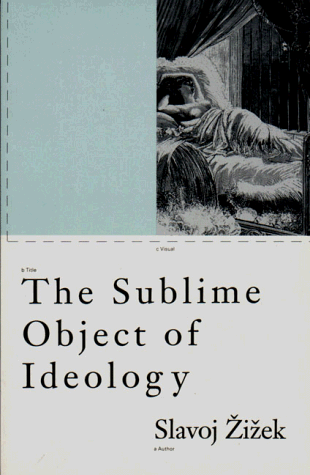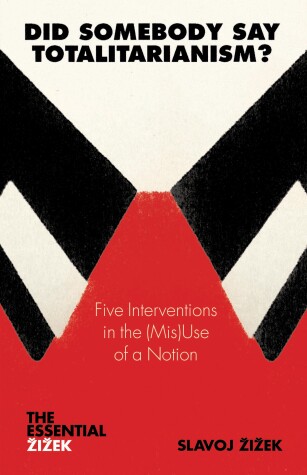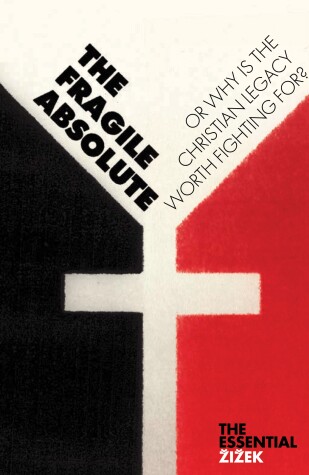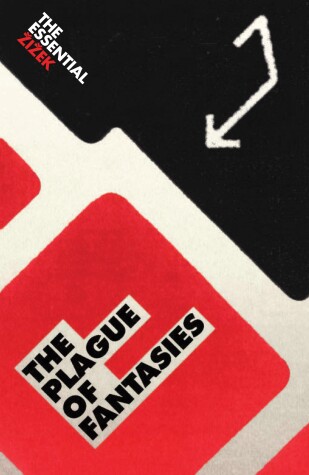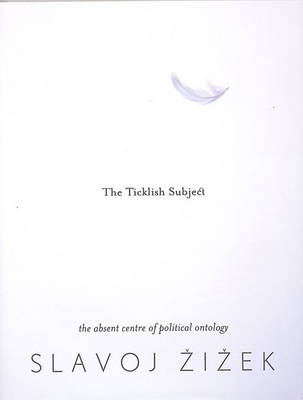Essential Zizek
1 primary work • 6 total works
Book 5
The idea of a Lenin renaissance might well provoke an outburst of sarcastic laughter. Marx is ok, but Lenin? Doesn't he stand for a monumental catastrophe that left an indelible mark on all of subsequent history and political thinking? Lenin, however, deserves wider consideration than this, and his writings of 1917 are testament to a formidable political figure. Zizek puts the 1917 writings in their historical context, while his extensive Afterword tackles the key question of whether this man can be reinvented in our era of cultural capitalism.
In this provocative and original work, Slavoj Zizek takes a look at the question of human agency in a postmodern world. From the sinking of the Titanic to Hitchcock's Rear Window, from the operas of Wagner to science fiction, from Alien to the Jewish Joke, the author's acute analyses explore the ideological fantasies of wholeness and exclusion which make up human society.
Zizek takes issue with analysts of the postmodern condition from Habermas to Sloterdijk, showing that the idea of a 'post-ideological' world ignores the fact that 'even if we do not take things seriously, we are still doing them'. Rejecting postmodernism's unified world of surfaces, he traces a line of thought from Hegel to Althusser and Lacan, in which the human subject is split, divided by a deep antagonism which determines social reality and through which ideology operates.
Linking key psychoanalytical and philosophical concepts to social phenomena such as totalitarianism and racism, the book explores the political significance of these fantasies of control. In so doing, The Sublime Object of Ideology represents a powerful contribution to a psychoanalytical theory of ideology, as well as offering persuasive interpretations of a number of contemporary cultural formations.
Zizek takes issue with analysts of the postmodern condition from Habermas to Sloterdijk, showing that the idea of a 'post-ideological' world ignores the fact that 'even if we do not take things seriously, we are still doing them'. Rejecting postmodernism's unified world of surfaces, he traces a line of thought from Hegel to Althusser and Lacan, in which the human subject is split, divided by a deep antagonism which determines social reality and through which ideology operates.
Linking key psychoanalytical and philosophical concepts to social phenomena such as totalitarianism and racism, the book explores the political significance of these fantasies of control. In so doing, The Sublime Object of Ideology represents a powerful contribution to a psychoanalytical theory of ideology, as well as offering persuasive interpretations of a number of contemporary cultural formations.
Totalitarianism has always had a precise strategic function: to guarantee the liberal democratic hegemony by dismissing the Leftist critique of liberal democracy as the two-faced twin of Right-wing dictatorships. Instead of providing yet another systematic exposition of the history of this notion, Zizek looks at totalitarianism in a way that Wittgenstein would approve of - finding it a cobweb of family resemblances. He reveals the consensus view of totalitarianism, in which it is invariably defined in terms of four things: the holocaust as the ultimate, diabolical evil; the Stalinist gulag as the alleged truth of the socialist revolutionary project; the recent wave of ethnic and religious fundamentalisms to be fought through multiculturalist tolerance; and the deconstructionist idea that the ultimate root of totalitarianism is the ontological closure of thought. Zizek concludes that the devil lies not so much in the detail but in what enables the very designation totalitarian: the liberal-democratic consensus itself.
One of the signal features of our era is the re-emergence of the 'sacred' in all its different guises, from New Age paganism to the emerging religious sensitivity within cultural and political theory.
The wager of i ek's The Fragile Absolute - published here with a new preface by the author - is that Christianity and Marxism can fight together against the contemporary onslought of vapid spiritualism. The revolutionary core of the Christian legacy is too precious to be left to the fundamentalists.
The wager of i ek's The Fragile Absolute - published here with a new preface by the author - is that Christianity and Marxism can fight together against the contemporary onslought of vapid spiritualism. The revolutionary core of the Christian legacy is too precious to be left to the fundamentalists.
Modern audiovisual media have spawned a 'plague of fantasies', electronically inspired phantasms that cloud the ability to reason and prevent a true understanding of a world increasingly dominated by abstractions--whether those of digital technology or the speculative market. Into this arena, enters ÂiÂek: equipped with an agile wit and the skills of a prodigious scholar, he confidently ranges among a dazzling array of cultural references--explicating Robert Schumann as deftly as he does John Carpenter--to demonstrate how the modern condition blinds us to the ideological basis of our lives.
By focusing on the Cartesian subject, this text explores ways in which to reformulate the politics of the Left in the area of global capitalism. In the process, the author touches on the work of prominent thinkers: Heidegger's attempt to overcome subjectivity; the post-Althusserian elaborations of political subjectivity (Ernesto Laclau, Etienne Balibar, Jacques Ranciere and Alain Badiou); deconstructionist feminism (Judith Butler); and the theories of second modernity and risk society (Anthony Giddens, Ulrich Beck).
